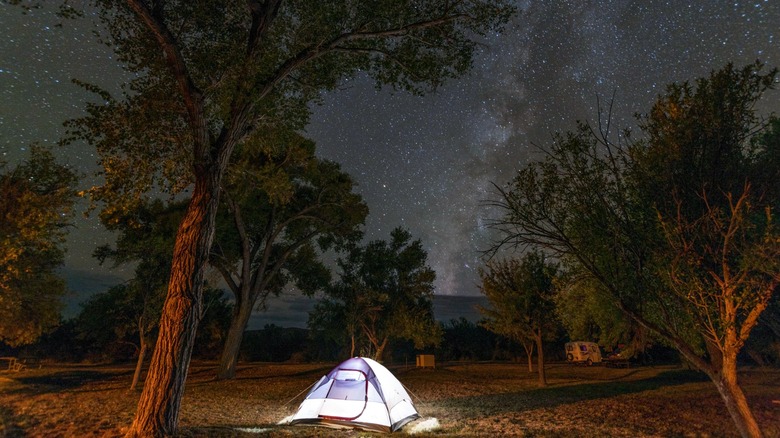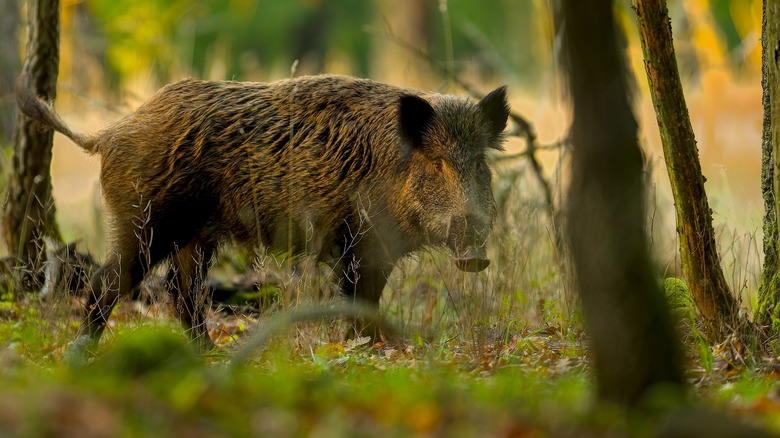Texas' Dangerous Invasive Species Tourists Should Be Aware Of When Camping
Would you camp next to shark-infested waters? Or outside a bear cave (as long as you've followed these safety tips to keep bears out of your car while camping)? The idea of putting yourself in such a position might sound ridiculous, but recent research has found that more people are killed by wild boars than either of the above animals, and you might be camping near them if you're exploring the Texan wilderness. This won't be surprising if you've seen the 2001 film "Hannibal," but if not, you might be shocked to hear that the average annual number of fatalities caused by sharks from 2014 to 2023 was 5.8, while wild boars killed approximately 19.7 people, as reported in Farm Journal.
Also known as feral hogs or wild pigs, boars are the undomesticated ancestors of the pigs you're probably familiar with. There are around 7 million wild boars in the U.S. right now. They can be found in 35 American states, and are very prominent in Texas. They are considered an invasive species because they reproduce rapidly and can destroy the surrounding land. Swines bury their noses deep in the earth to find food and dig up vast chunks of it in the process. They quickly pillage entire fields, pulling plants up by the roots and damaging the soil. Boars cost farmers and the agricultural sector over $2.5 billion annually, according to estimates by the USDA (via The Guardian). In addition, hogs transmit a range of viral and bacterial diseases to other animals, including humans, and they might leave you with a parasite or two.
Safety tips for camping where there might be wild boars
As already mentioned, boars can be very dangerous. They have sharp tusks that they can use to slash their opponents, and if that wasn't enough, wild boars can also crush bones with their teeth. While many attacks occur because the boar feels threatened, opportunist predatory behavior has also been observed. They are very intelligent, and unlike many other wild animals, they're often not scared of humans. Without getting too graphic, wild boars can, and sometimes do, eat people. Most global attacks on humans occur in India and China, and are comparatively much rarer in the U.S. However, as the hog population continues to grow, it's important to remain vigilant. And remember the easy mnemonic that could save your life if you get lost hiking.
So, aside from the small fact that they kill and eat people, there are plenty of reasons why you don't want to come into contact with a feral swine. What should you do if you're planning to camp in areas that might have a wild boar problem? "Know what the situation is where you're camping. There's a big difference between 'there's boars here,' 'there's a lot of boars here,' and 'the boars here are overpopulated and running out of food and territory,'" suggested one Reddit comment. "When boars overpopulate, they start to get aggressive. And when they're low on food, they stop being as picky about what they eat. You could end up on the menu." Some safe practices include keeping a fire going, cleaning up your campsite, and ensuring you camp outside dense forest to avoid accidental bumps. If you do encounter one, keep your distance (or climb a tree). If you're planning to camp in Texas, consider this DIY perimeter alarm for easy safety.

